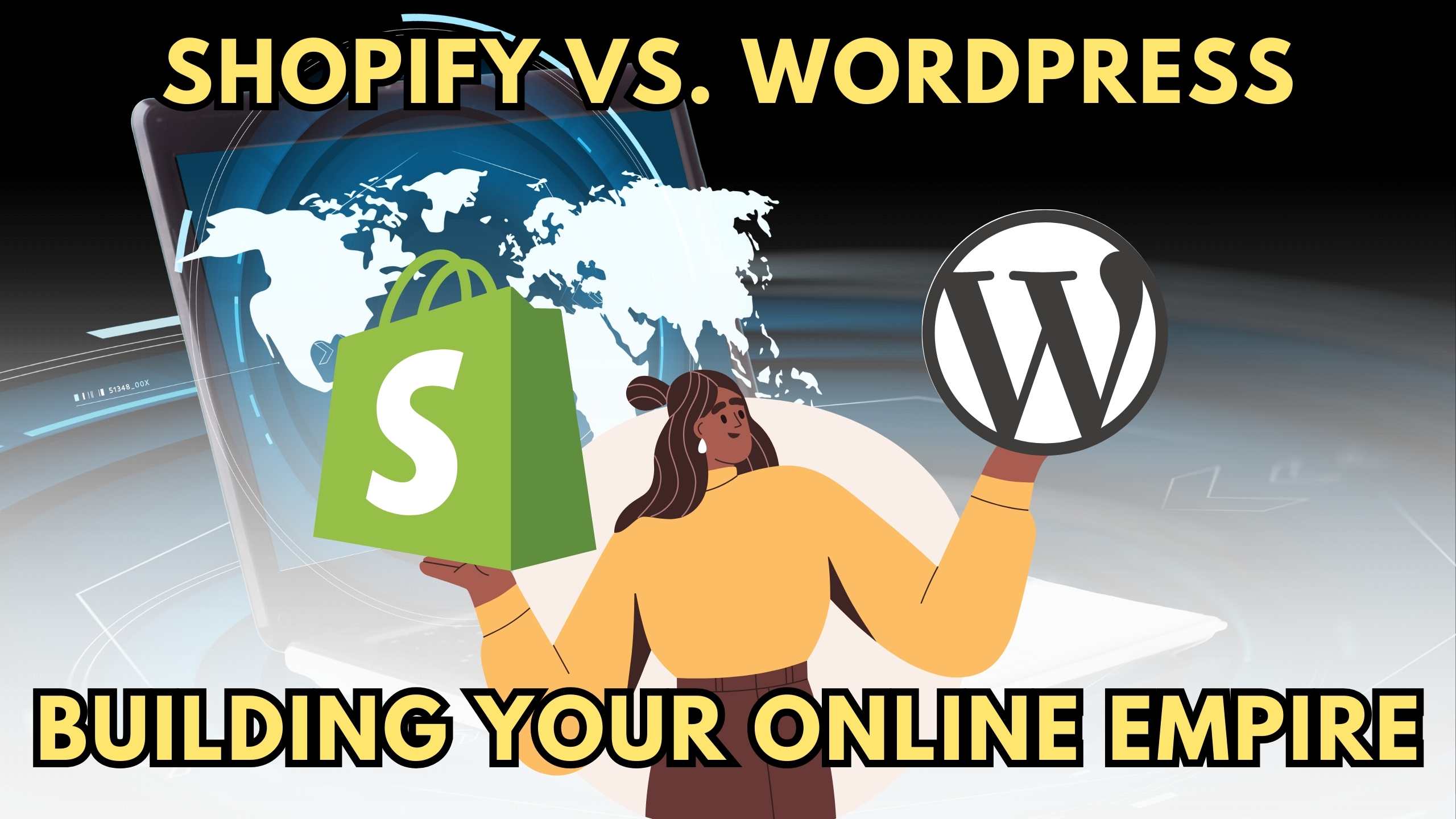Shopify vs. WordPress: Building Your Online Empire


Shopify vs. WordPress: Building Your Online Empire
In the ever-evolving landscape of e-commerce, choosing the right platform to build your online empire is crucial. Two giants in the game are Shopify and WordPress. Each has its strengths and weaknesses, catering to different needs and preferences. Let’s delve into the comparison to help you make an informed decision.
1. Ease of Use
Shopify: Known for its user-friendly interface, Shopify simplifies the setup process for beginners. With a vast array of customizable templates, even those with limited technical knowledge can create a professional-looking store.
WordPress: While WordPress might have a steeper learning curve, it offers unparalleled flexibility. With the right plugins and themes, you can customize every aspect of your online store, making it ideal for those seeking complete control over their website.
2. Design and Customization
Shopify: The platform offers a variety of stunning, mobile-responsive themes. With a straightforward drag-and-drop editor, you can quickly customize your store’s look without delving into complex coding.
WordPress: Renowned for its extensive library of themes and plugins, WordPress allows for intricate design customization. This is an excellent option if you have a specific vision for your online store and want to stand out from the competition.
3. E-commerce Features
Shopify: As a dedicated e-commerce platform, Shopify comes with a plethora of built-in features like payment processing, inventory management, and abandoned cart recovery, streamlining the entire selling process.
WordPress: While WordPress itself isn’t exclusively an e-commerce platform, the WooCommerce plugin transforms it into a robust online store. It provides a wide range of features and extensions, offering scalability as your business grows.
4. Cost
Shopify: With straightforward pricing plans, Shopify eliminates hidden costs and simplifies budgeting. However, transaction fees can add up, especially for high-volume businesses.
WordPress: WordPress itself is free, but expenses arise from hosting, domain registration, and premium themes/plugins. While this may seem cost-effective initially, customization and additional features can incur extra costs.
5. SEO Optimization
Shopify: Known for its SEO-friendly structure, Shopify simplifies on-page optimization. However, some customization limitations might affect advanced SEO strategies.
WordPress: With numerous SEO plugins available, WordPress allows for in-depth optimization. You have full control over meta tags, URLs, and other crucial elements, making it a favorite among SEO enthusiasts.
Relevant SaaS Products:
- SEMrush: Boost your website’s SEO with comprehensive keyword research and competitor analysis tools.
- Mailchimp: Elevate your email marketing strategy with Mailchimp’s user-friendly platform.
- Zendesk: Provide top-notch customer support and enhance user experience.
- Stripe: Seamlessly handle online payments and transactions.
- Trello: Streamline project management and collaboration within your team.
Conclusion
In the Shopify vs. WordPress debate, there’s no one-size-fits-all answer. Your choice depends on your business goals, technical expertise, and personal preferences. Consider your priorities, explore the features, and align them with your long-term vision for a successful online empire.
Unlock Secret Deals and Save Big with Subscribed.fyi!
Are you ready to supercharge your online empire? Sign up for free on Subscribed.fyi today and unlock exclusive member-only deals on 100+ SaaS tools. Take control of your expenses, manage subscriptions effortlessly, and enjoy savings totaling $100,000+ per year. Your secret deals are just a click away!
Relevant Links:








